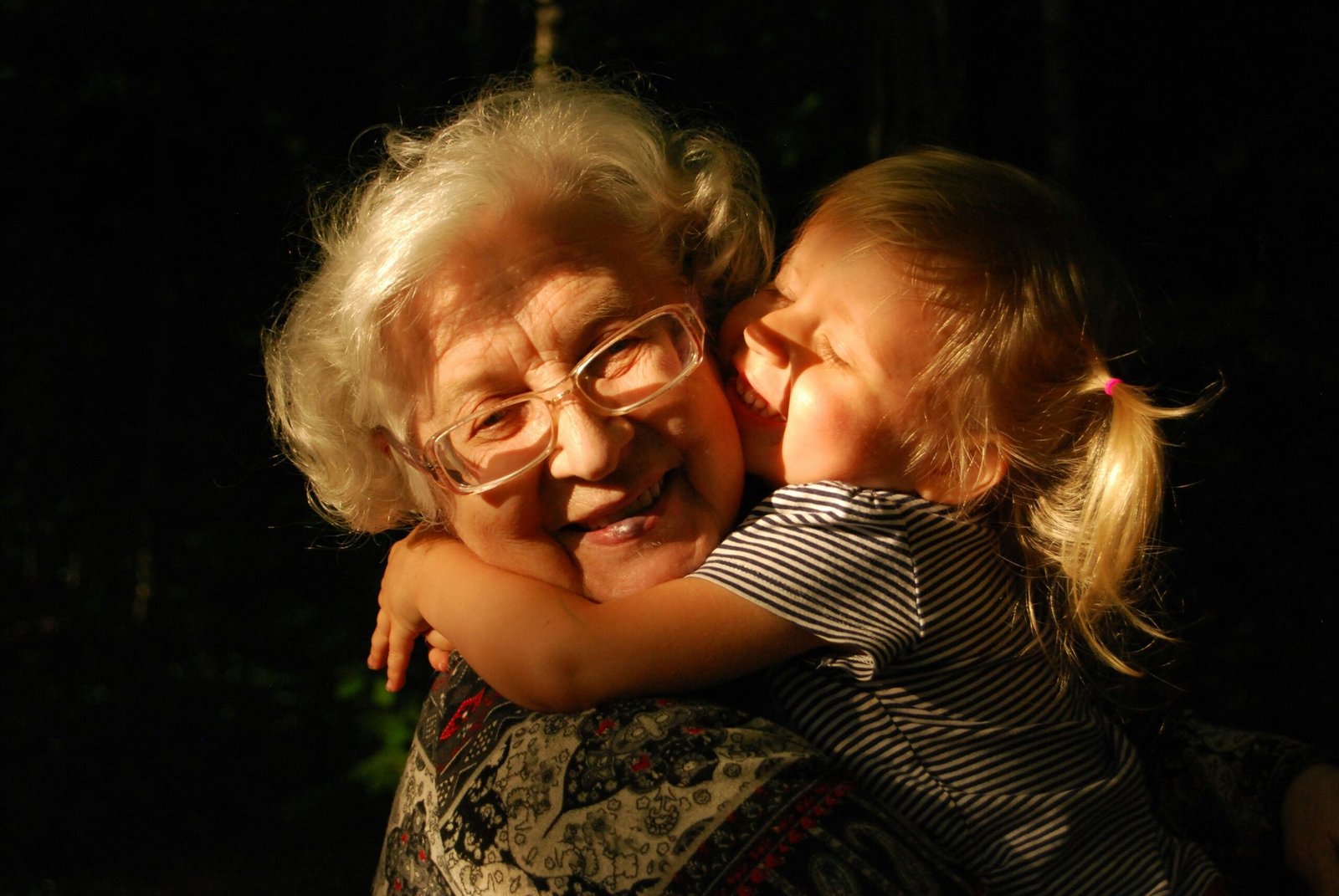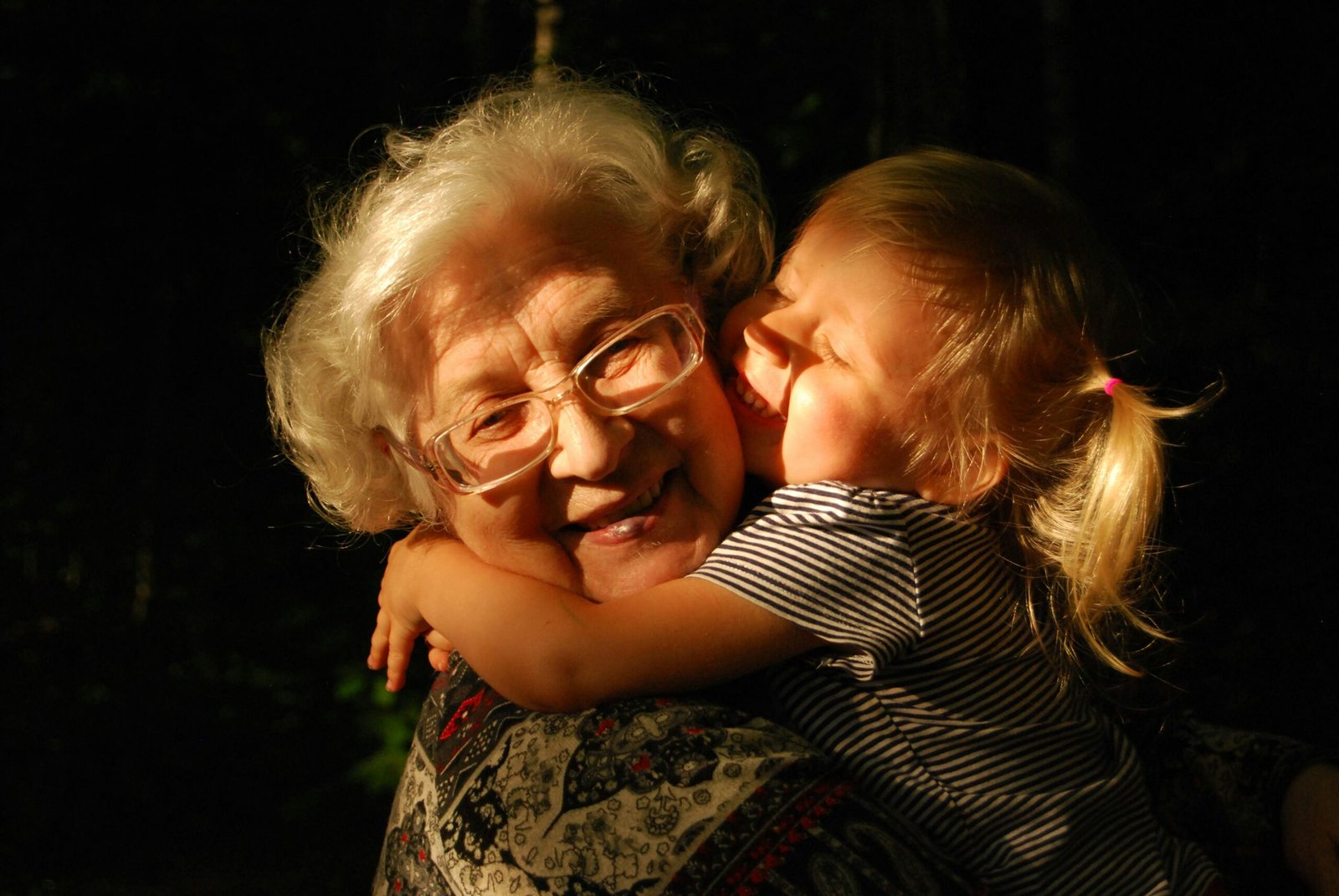Understanding the Weight of Hurt
Experiencing betrayal can create an emotional burden that weighs heavily on the heart and mind. The pain associated with such experiences often manifests as unresolved hurt, which can permeate various aspects of an individual’s life. When one holds onto these feelings of betrayal, resentment can build up, forming a barrier against emotional well-being. This internal conflict not only affects mental health but can also manifest physically, leading to heightened stress responses and a deterioration of overall health.
Research has indicated that unresolved emotional pain can result in anxiety, depression, and a host of physical ailments. The emotional distress from betrayal can lead to chronic fatigue, headaches, and even more serious health issues such as cardiovascular problems. This connection between mind and body emphasizes how crucial it is to address any lingering feelings of hurt rather than allowing them to fester.
Moreover, harboring hurt can create a vicious cycle where negative emotions cloud judgment and impact interpersonal relationships. Individuals may find themselves unable to trust others or engage wholeheartedly due to their past experiences. This behavior is detrimental, not only to oneself but also to the relationships that could be rich in support and connection. Acknowledging feelings of hurt is an essential first step on the journey toward healing. By understanding the emotional weight carried from betrayal, one can begin to untangle the complex web of pain and resentment.
It is important to note that recognizing these feelings does not entail condoning the betrayal but instead allows for a realistic appraisal of the situation. Through this acknowledgment, individuals can start to devise strategies to manage and ultimately release the pain that holds them back from experiencing peace and fulfillment. This process of confronting and understanding unresolved hurt sets the stage for the possibility of forgiveness and eventual healing.
The Pain of Betrayal
Betrayal is an experience that can profoundly affect an individual’s emotional well-being, often leading to a tsunami of feelings that can be difficult to navigate. When someone we trust undermines us—whether through infidelity, broken promises, or deceit—the emotional fallout can be debilitating. For many, the initial shock of betrayal is accompanied by a deep sense of loss. This sense of loss can manifest as grief, as one mourns not only the relationship that was but also the idealized version of that relationship that may never exist. Personal stories abound, illustrating these feelings. For instance, an individual may recount the moment they discovered a partner’s infidelity, describing the overwhelming wave of anger, sadness, and confusion that followed. Such reactions are common and highlight the intensity of the pain involved.
Moreover, betrayal can induce psychological ramifications that extend beyond immediate emotional reactions. Trust—once broken—can create an intrinsic sense of vulnerability. Individuals may find themselves struggling with feelings of inadequacy or unworthiness, which can affect future relationships. The betrayal often leads to heightened suspicion towards others, as the victim wrestles with the fear that they may face similar betrayals again. Mistrust becomes an overwhelming shadow, influencing not only personal connections but also professional relationships and friendships.
As these feelings linger, anger can morph into resentment, creating a prolonged cycle of emotional turmoil. Many individuals find themselves ruminating on the injustice they have faced, unable to move past the betrayal. This emotional turmoil is compounded by a perceived loss of control over one’s own life choices. Understanding these psychological impacts is essential in acknowledging the full weight of betrayal, as it serves as a significant barrier to healing and moving forward.
The Road to Forgiveness: A Personal Journey
Embarking on the path to forgiveness is often a complex journey, riddled with emotional turmoil and resistance. Initially, the individual may experience a mixture of anger, sorrow, and confusion after facing betrayal. The feeling of being wronged can lead to a protective instinct, where nurturing resentment seems more comfortable than seeking forgiveness. This resistance is not uncommon; rather, it is a natural response to profound hurt. The mind grapples with a chaotic range of emotions, as thoughts spiral around the injustice experienced, resulting in a battle between the desire for peace and the urge to remain tethered to past grievances.
Yet, amidst this chaos, a moment of realization can arise. The individual may come to understand that holding onto resentment does not equate to empowerment; instead, it binds them to the pain, inhibiting personal growth and healing. The acknowledgment that forgiveness is synonymous with personal liberation becomes pivotal. It signifies a shift from victimhood to agency, allowing space for emotional release and renewal. The decision to forgive transforms into a necessity, not only for moving forward but for reclaiming one’s sense of self.
Making the conscious choice to pursue healing sets the stage for a profound shift. This decision is often accompanied by introspection and self-compassion. Recognizing that forgiveness is not about absolving the wrongdoer but about finding peace within oneself enhances the journey. As the individual navigates the myriad emotions associated with betrayal, the understanding that healing and forgiveness go hand in hand fosters resilience. It propels one towards a more profound sense of wellbeing, aligning with the ultimate goal of inner peace.
The Role of Introspection in Healing
Introspection serves as a crucial tool in the healing journey, particularly after experiencing betrayal. This process involves a deep examination of one’s thoughts, feelings, and motivations, allowing an individual to gain insight into the impact of their experiences and relationships. Engaging in self-reflection can illuminate the underlying emotions associated with betrayal, such as anger, sadness, or confusion. By confronting these feelings head-on, one can begin to understand the root causes of their pain and, in turn, foster the gradual process of forgiveness.
There are several methods through which individuals can engage in introspection, each offering a unique path to self-discovery. Journaling is one of the most effective ways to explore one’s thoughts. Writing down feelings can facilitate an understanding of emotional responses and reveal patterns that might have gone unnoticed otherwise. Whether through structured prompts, free-writing, or articulating feelings of hurt and betrayal, journaling provides a safe space for individuals to articulate their experiences without judgment.
Meditation also plays a significant role in introspection. This practice encourages individuals to quiet their minds and create a mental space for reflection. Mindfulness meditation, in particular, helps users focus on the present moment. By observing thoughts without becoming attached to them, individuals can learn to accept their feelings of betrayal as part of their life’s journey rather than as defining moments. This acceptance is key to transforming pain into opportunities for personal growth and healing.
Incorporating introspective activities, such as journaling and meditation, allows individuals to process their emotions profoundly. These practices not only provide clarity but also help in recognizing patterns and triggers that can inform future interactions. Ultimately, by leveraging introspection, individuals embark on a healing journey that paves the way toward forgiveness and emotional resilience.
Therapy as a Tool for Transformation
Seeking professional help through therapy can serve as a transformative tool for individuals grappling with the emotional turmoil that often accompanies experiences of betrayal. The journey towards forgiveness, while deeply personal, is one that can be greatly enhanced through therapeutic intervention. Various therapeutic approaches, including Cognitive Behavioral Therapy (CBT) and narrative therapy, have been shown to be particularly effective in addressing the emotional pain associated with betrayal.
Cognitive Behavioral Therapy focuses on identifying and challenging negative thought patterns that can hinder emotional recovery. By reshaping these thoughts, individuals can work towards fostering a more forgiving perspective. CBT equips clients with skills to manage their emotions effectively, thereby transforming feelings of anger and resentment into understanding and acceptance. Through structured sessions, clients learn practical techniques to process their feelings and approach their experiences differently.
Narrative therapy offers another compelling approach, allowing individuals to reframe their personal narratives. By telling their stories, clients can detach from their pain and view it through a different lens. This process fosters a deeper understanding of their experiences and can lead to significant emotional healing. Personal testimonials highlight how narrative therapy has empowered individuals to reclaim their stories and find peace, making room for forgiveness in their lives.
Many who have engaged in therapy report profound transformations. For instance, one participant noted, “Therapy gave me the tools to confront my feelings and view my betrayal as a part of my story, rather than the whole of it.” This illustrates the powerful role that therapy, through its various methodologies, can play in facilitating an individual’s journey towards forgiveness. By investing in professional guidance, individuals can explore their emotions in a safe environment, ultimately paving the way for healing and reconciliation.
The Support of Loved Ones
During the complex healing journey that follows betrayal, the support of loved ones plays a crucial role. Friends, family, and community members can significantly contribute to the emotional recovery by offering understanding and compassion. Frequently, the pain of betrayal can lead to feelings of isolation and loneliness, making the presence of a supportive network even more essential. Close relationships afford individuals a sense of belonging and validation, which can help alleviate the emotional burden associated with betrayal and foster resilience.
Emotional support from loved ones can take many forms, ranging from active listening to providing affirmations and encouragement. Open communication with trusted individuals allows those who have experienced betrayal to express their thoughts and feelings, helping to process their emotions constructively. This sharing is vital, as it can provide clarity and alleviate the overwhelming feelings that often accompany such profound hurt. Moreover, the feedback and insights from others can aid in developing a perspective that encourages healing.
Additionally, involving oneself in community activities can provide a further layer of support. Engaging with others outside of one’s immediate circle can facilitate new connections and foster a sense of belonging that might be lacking after a betrayal. Groups or support networks centered around shared experiences allow individuals to relate to others who have faced similar circumstances, which can be instrumental in feeling understood and supported. It is important to remember that healing is not a solitary journey; rather, it is enriched by the love, support, and understanding of those around us.
In conclusion, the journey towards forgiveness and healing after betrayal is profoundly impacted by the support network one cultivates. The emotional backing from friends, family, and community fosters resilience, understanding, and ultimately, the capacity to embrace forgiveness.
Embracing the Power of Letting Go
Letting go of grudges is a transformative process that can significantly alter one’s emotional landscape. When individuals hold onto resentment, they often unwittingly keep themselves bound to the very sources of their pain. This emotional bondage can result in a range of negative outcomes, including chronic stress, anxiety, and hindered personal growth. Embracing the power of letting go delineates the pathway to liberation and healing. By choosing to forgive, individuals create a space for emotional relief and better mental health.
Forgiveness does not imply excusing the betrayal or forgetting the hurtful actions; rather, it is an act of self-care that prioritizes the forgiver’s well-being over the offense. By relinquishing anger and resentment, individuals can regain their emotional autonomy. This process fosters emotional liberation, allowing individuals to focus on their healing journey without the weight of past grievances. The act of letting go encourages personal growth, prompting individuals to reflect on their values and foster resilience.
Moreover, embracing this power does not automatically eliminate feelings of hurt, but it enables individuals to change their relationship with these emotions. They learn to view pain as a component of their journey rather than as an all-defining aspect of their identity. The process of forgiveness is deeply personal and varies for each individual. Still, the outcome typically resonates with a profound sense of relief and clarity, allowing individuals to forge ahead with their lives unencumbered by past betrayals. Such emotional freedom emphasizes that letting go is a personal choice that reinforces one’s commitment to healing, positively influencing their overall well-being and future relationships.
Healing Beyond Forgiveness
Forgiveness is a vital step in the healing process, particularly after experiencing betrayal. However, it is critical to understand that healing does not end with the act of forgiveness. Instead, it marks the commencement of a deeper journey towards self-discovery, personal growth, and nurturing one’s emotional well-being. Following the act of forgiveness, individuals often find themselves at a crossroads; the choices made thereafter can significantly influence their future emotional state.
Engaging in ongoing self-care becomes essential after forgiving someone. Self-care practices include activities that promote mental, emotional, and physical well-being. Individuals may choose to engage in therapy or counseling, which can provide a safe space for expressing emotions and facilitating understanding. Meditation, journaling, and physical exercise can also serve as powerful tools for individuals on their healing journey. By prioritizing these self-care strategies, individuals can reinforce their emotional resilience and foster an environment conducive to personal growth.
Moreover, it is essential to evaluate and redefine personal relationships following forgiveness. Building healthy boundaries and cultivating nurturing connections can help prevent future betrayals. The focus should shift towards forming relationships that inspire trust and respect rather than those that contribute to emotional turmoil. This intentional approach towards relationships fosters a supportive environment, enabling individuals to thrive and move forward with their lives.
Continuing the healing journey beyond forgiveness involves an exploration of one’s values and aspirations. It presents an opportunity for individuals to redefine their identity and prioritize the aspects of life that genuinely matter to them. As forgiveness becomes an integral part of this process, it opens the pathway to renewed hope and optimism for a fulfilling future. Ultimately, acknowledging that healing is a continual journey allows individuals to embrace the complexities of their experiences while fostering personal growth and healthier relationships.
The Lasting Benefits of Forgiveness
Forgiveness is a powerful tool that can significantly impact both the forgiver and the forgiven. Engaging in the act of forgiveness can lead to profound improvements in mental health, allowing individuals to relieve themselves from the burdens of anger, resentment, and grief. Studies have shown that those who embrace forgiveness often experience reduced levels of anxiety and depression. This transformation occurs as the mind begins to focus on positive emotions and experiences rather than dwelling on past hurts.
Additionally, forgiveness plays a crucial role in strengthening relationships. When one chooses to forgive, they can restore trust and repair emotional connections that may have been damaged. This restoration fosters healthier communication patterns and enhances relational satisfaction. Not only can the act of forgiving mend broken bonds, but it also teaches resilience, demonstrating the capacity for growth and understanding even amidst conflict.
Moreover, embracing forgiveness can lead to a renewed sense of peace and happiness. By letting go of grudges and negative feelings, individuals often find themselves liberated from emotional turmoil. This freedom paves the way for personal growth, increased self-esteem, and a more optimistic outlook on life. The healing journey allows one to reclaim joy and contentment, reflecting on the transformative experience that forgiveness can catalyze.
In conclusion, the benefits of forgiveness extend far beyond the immediate act; they encompass improved mental health, strengthened relationships, and a profound sense of internal peace. For readers considering their own paths toward forgiveness, it is essential to take actionable steps. Reflect on past experiences, acknowledge feelings, and embrace the potential for healing. Taking these steps can lead to a more fulfilling life and contribute to emotional wellbeing.





















No Comments
Leave a comment Cancel